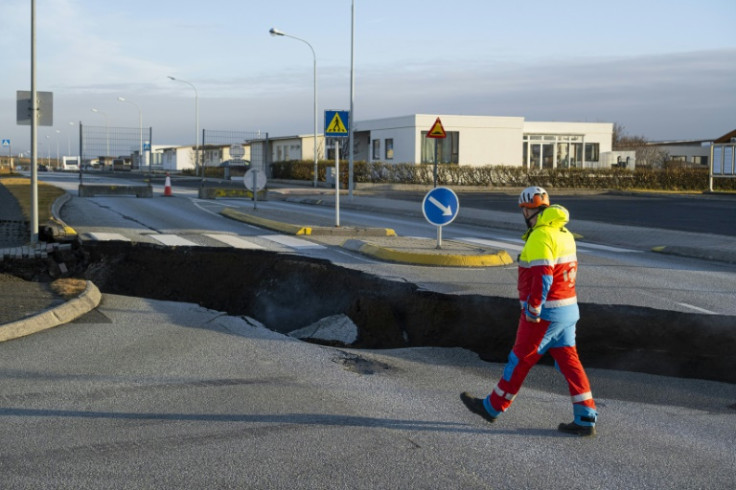
Iceland remains highly alert as the city prepares for a possible volcanic eruption. The areas surrounding the town of Grindavik have witnessed at least 120 earthquakes in the last few days.
The Icelandic Met Office has said that an eruption "is still considered likely". Thousands of residents in the small coastal town of Grindavik were evacuated a fortnight ago after the authorities confirmed that an eruption is imminent in the region in the coming days.
"The highest likelihood for an eruption is in the middle part of the dike between Hagafell and Sýlingarfell," it added. The evacuation in Grindavik was carried out after authorities found that a nine-mile-long underground river of magma was moving beneath the town towards the ocean.
The seismic activity has left wide cracks in roads and shut down tourist attractions, according to local media reports. Several videos and images showing the damage caused by the magma activity have made it to social media platforms.
Grindavík ground damages after many quakes and failed eruption. At least a 25 m deep hole in this case pic.twitter.com/IQ9Rtqz36Y
— Daniel (@DanielEngIce) December 1, 2023
In the last month, tens of thousands of earthquakes have been reported on the Reykjanes Peninsula. The authorities declared a state of emergency soon after an increase in seismic activity was reported in the region.
"We're seeing a variety of businesses expressing interest in reopening. With available housing and machinery for production and services, people are returning and taking advantage of these opportunities to keep their businesses afloat," said Fannar Jónasson, Grindavik town's mayor.
Iceland, which sits above a volcanic hotspot in the North Atlantic, averages an eruption every four to five years.
The most destructive one in recent times took place in 2010, when the Eyjafjallajokull volcano erupted, sending huge clouds of ash into the atmosphere and leading to extensive airspace closures over Europe. More than 100,000 flights were grounded, stranding millions of international travellers and suspending air travel for days because of concerns the ash could damage jet engines.
The country's tourism board has also pointed out that the country has been struck by three eruptions in the last three years on the same peninsula where activity is currently being monitored; people have been unharmed and travel has remained undisrupted.
"The process which began on 25 October with a significant seismic swarm and peaked on 10 November with the formation of a 15 km long magmatic dike is not over. With certainty it can be stated that a phase has started where a similar sequence of events might repeat in time," reads an excerpt from an advisory issued by the Icelandic Met Department.
"At this stage, though, is difficult to say when the next energetic intrusion of magma at shallower depth might occur and if it will occur in a similar area or not," it added. However, the statement did mention that there has been a decrease in seismicity on the peninsula in the last few days.







